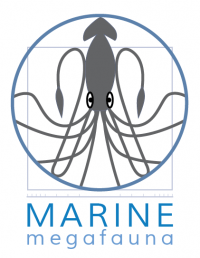Students Aged 9 to 65+ Study PLOS Research in Marine Megafauna MOOC
An amazingly diverse and far-flung group of 11,000 students signed up for Duke University’s massive open online course, Marine Megafauna: An Introduction to Marine Science and Conservation – now in its final week. In today’s guest post from Kim Manturuk of the Duke Instructional Technology Center we find out who they are and why they chose to participate in this MOOC — the first to employ a curriculum focused on the use of PLOS ONE Open Access research.
Taught by Dr. Dave Johnston, the course covers sea turtles, whales, dolphins, seals, penguins, sharks, giant squid and other large ocean creatures – collectively known as marine megafauna – and what they can tell us about how the ocean works and why it is so important for all life on earth. Presented on the Coursera platform, Dr. Johnston’s curriculum includes research articles, along with field data and multimedia from the PLOS Marine Megafauna Collection.
Here is Kim Manturuk’s post, which was originally published on the Duke Instructional Technology Center blog on March 6, 2014.
Marine Megafauna MOOC, By the Numbers
Our pre-course survey results are in and all indications are that Marine Megafauna students are a diverse group! The first chart below shows the age distribution of students who took the survey. While there is a high concentration of students between ages 18 and 35, over 450 of our students are under 18. Of those, several told us that they were taking the course as part of a homeschooling learning experience. For example, a student posted the following in the discussion forum:
I’m from France. I’m following this MOOC with my homeschooled daughter, who picked the subject. She’s 9 and loves animals. As for me, I’m the daughter of a navy officer, so I’m kind of connected to the sea since childhood. I currently [live] far from it and miss it a lot.
 As you can see in the chart below, most students already have a college degree. However, again because the enrollment numbers are so large, the 3% of students who are still in middle or high school amounts to nearly 350 people.
As you can see in the chart below, most students already have a college degree. However, again because the enrollment numbers are so large, the 3% of students who are still in middle or high school amounts to nearly 350 people.
Most of the students in Marine Megafauna are also students elsewhere – 42% are currently enrolled in some type of educational program. Furthermore, most students also have previous online learning experience; almost half have taken a Coursera course before. Hopefully this is an indicator of the high quality of these types of courses!
When it comes to why students signed up for Marine Megafauna, the answer is simple – they expected the course to be fun and enjoyable! Over 90% of students felt that was an important reason why they signed up for the course. Earning a credential was the least important reason, yet over 30% of students did say the credential was important.
Finally, we were interested in learning how comfortable people were with the topic of marine megafauna before starting this course. Marine megafauna is more of a niche topic than some subjects, so we were curious to find out if the course attracted people who were brand-new to the topic or people who were already knowledgable and looking to learn more. Our survey indicates that most students feel fairly comfortable discussing the topic of marine megafauna with others and engaging in learning activities on the topic.
The course discussion forum posts bear this out; many students are already very enthusiastic about marine megafauna. Some sample posts are:
Marine biology had always been a dream since I grew up in one of the island-provinces in the Philippines and thus, I came to love the sea which had been a big part of my childhood.
I have always had a fascination with the ocean and it’s inhabitants. I have either lived at the coast, on an island in the pacific, or currently within 2 hours of it for over 20 years. I am looking forward to this class.
I have always had a love for our oceans and waterways, and I simply want to learn more about them and how our actions are affecting them.
On a final note, the students in this course include people from an eclectic and interesting range of backgrounds. Students in this course include: a penguin animal trainer, an environmental activist, a marine expedition safety and support specialist, a full-time mother of eight, a filmmaker, a marine rescue volunteer, and one student who is currently taking a trip around the world. We can’t wait to hear what types of marine megafauna that student gets to observe on his or her journey!

Kim Manturuk is the manager of program evaluation at Duke University’s Center for Instructional Technology and is currently working on research to understand what types of activities and resources work best in MOOCs.





